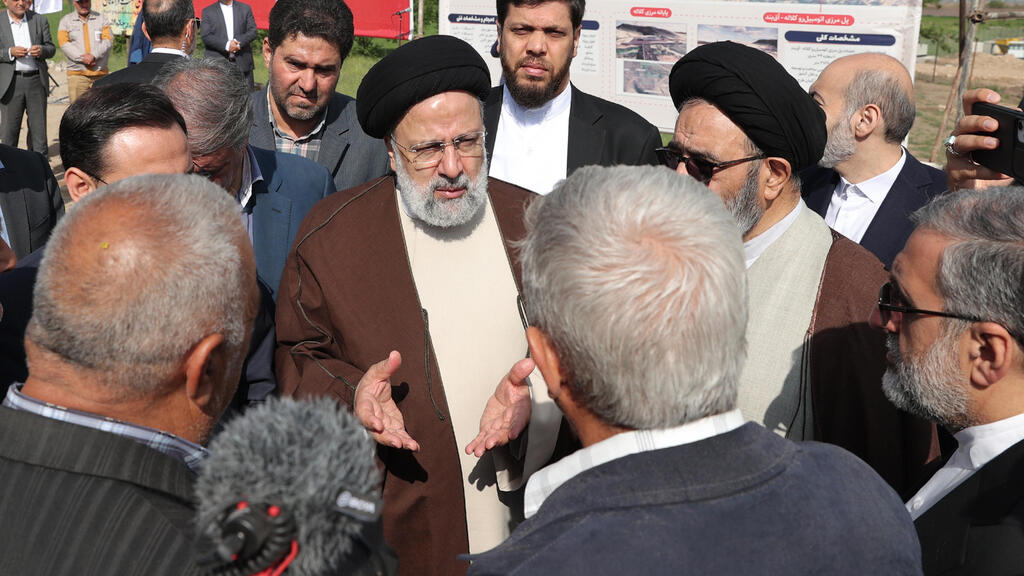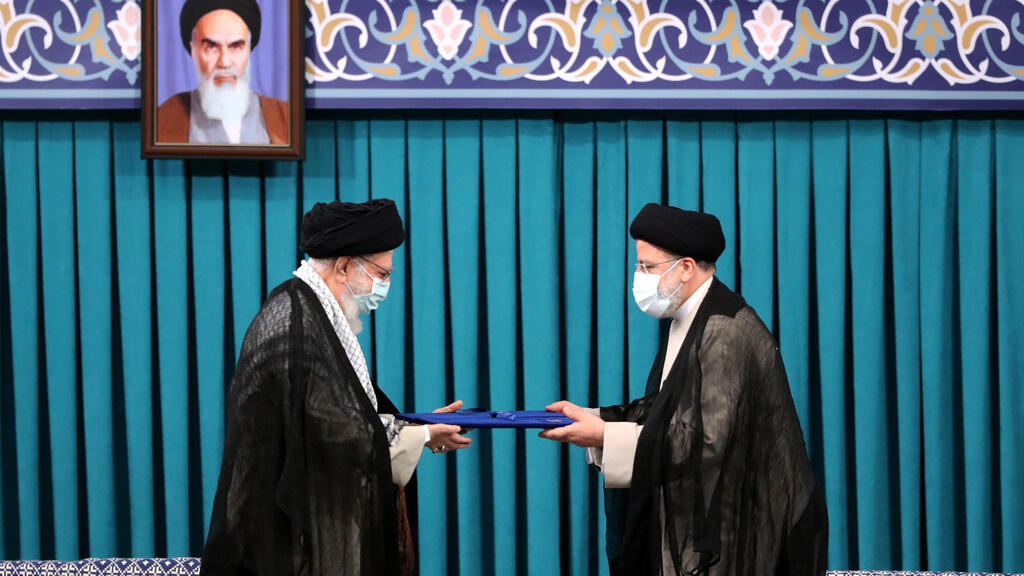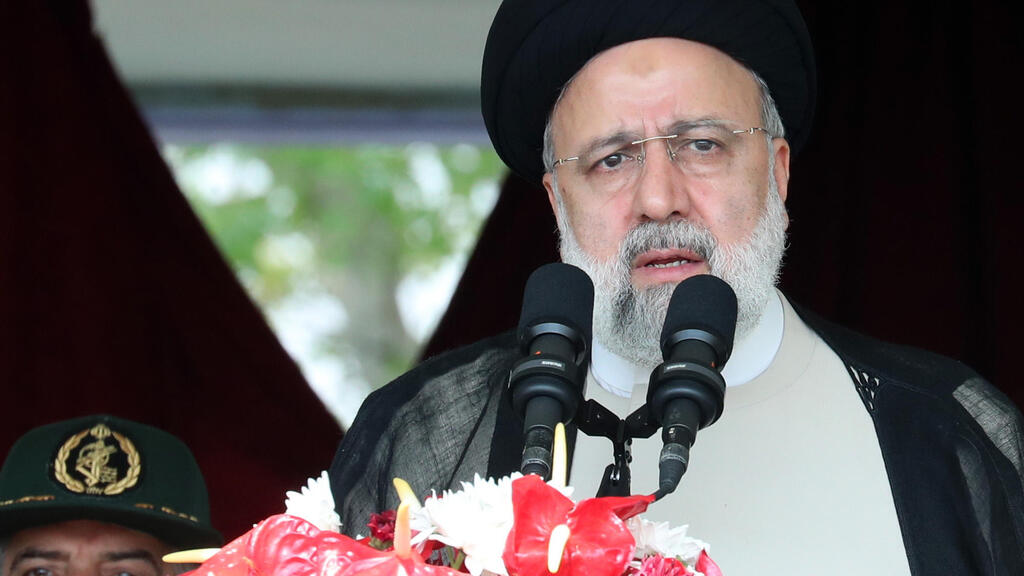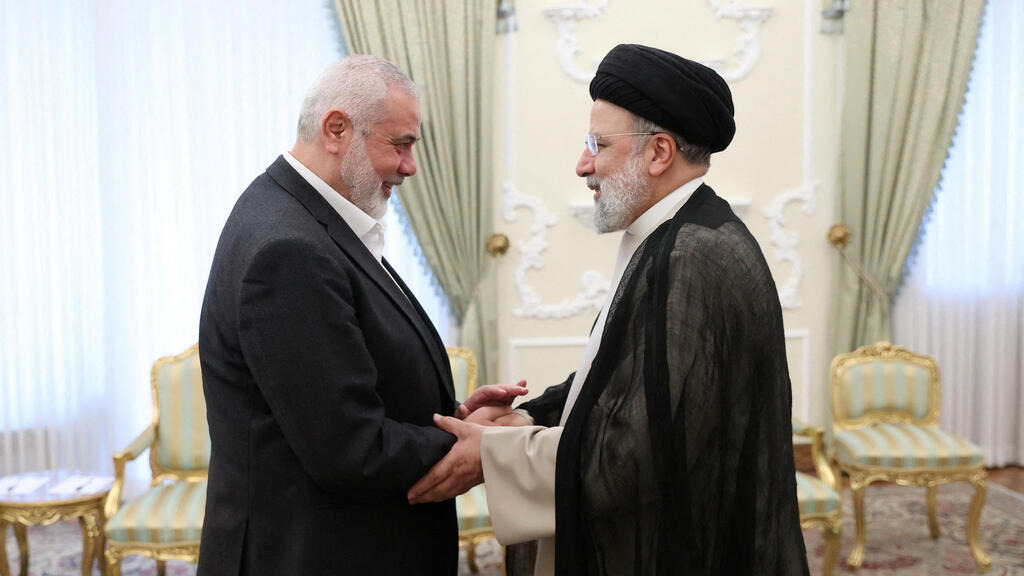Getting your Trinity Audio player ready...
Iranians and the world await word on the fate of Iranian President Ebrahim Raisi his foreign minister Hossein Amir-Abdollahian and other officials who were on a helicopter believed to have crashed earlier on Sunday. Although there is no confirmation, senior Iranian officials have said there was reason for concern for the lives of those on board.
The Iranian president - whose career started in the years after the 1979 Islamic revolution and who is close to Supreme Leader Ayatollah Ali Khamenei - took power in a 2021 election that was followed by turbulent years of protests and tensions.
4 View gallery


Ebrahim Raisi shortly before his helicopter crashes in Iran's East Azerbaijan province
(Photo: Getty Images)
Born in 1960 in the northeastern holy city of Mashhad, Raisi followed in the footsteps of his father who had died when he was just 5 years old and studied theology and Islamic jurisprudence under Khamenei.
He married Jamileh Alamolhoda, an educational sciences lecturer at Tehran's Shahid-Beheshti University. They have two daughters.
As a member of the clergy, he participated in demonstrations against the Shah of Iran, which ultimately led to his removal from power. Aged just 20, in the wake of the Islamic revolution that toppled the U.S.-backed monarchy, Raisi was named prosecutor-general of Karaj next to Tehran.
In 1988 Raisi was a member of the 4-man prosecution committee dubbed the "death committee" which sentenced thousands of Iranian opponents of the regime to death following the Iran-Iraq war, earning him the title "the Butcher of Tehran." He served as Tehran's prosecutor-general from 1989 to 1994, deputy chief of the Judicial Authority for a decade from 2004, and then national prosecutor-general in 2014.
In 2016, Khamenei put Raisi in charge of a charitable foundation that manages the revered Imam Reza shrine in Mashhad and controls a large industrial and property asset portfolio.
Three years later, the supreme leader appointed him head of the Judicial Authority and in that role, he oversaw one of the largest systems of executions in the world, which along with the brutal crushing of anti-regime protests and the killing of some 1,500 people, prompted the U.S. to impose sanctions on him
Like Khamenei, Raisi has often spoken up defiantly as Iran, the biggest Shiite Muslim power, has been in a tense standoff with its declared arch-foes the United States and Israel. He was seen as a likely successor to the 85-year-old supreme leader.
Raisi was elected president in 2021, winning 62% of the vote, after an election in which more than half the electorate stayed away – despite a 70% voter participation in earlier ballots, and after several political heavyweights had been barred from standing.
4 View gallery


Ebrahim Raisi receives official appointment as president from Supreme Leader Ali Khamenei
(Photo: EPA)
He succeeded the moderate Hassan Rouhani whose signature achievement was a 2015 nuclear deal with world powers that gave Iran relief from international sanctions.
Like other ultraconservatives, Raisi harshly criticized his predecessor's camp after then-president Donald Trump unilaterally withdrew the United States from the nuclear pact in 2018 and reimposed punishing sanctions on Iran.
Raisi took the reins of a country in social and economic crises. After portraying himself as a corruption-fighting champion of the poor, Raisi announced austerity measures that caused a sharp increase in the price of some staples, triggering anger at the high cost of living.
Then, in late 2022, a wave of nationwide protests erupted following the death in custody of Mahsa Amini after her arrest for allegedly breaching Iran's strict Islamic dress code for women.
In a landmark event in March 2023, Iran and Saudi Arabia, long-time regional foes, announced a surprise deal that restored diplomatic relations.
But the Gaza war that broke out on October 7 between Israel and Hamas sent regional tensions soaring again, and tit-for-tat escalations led to Tehran launching hundreds of missiles and rockets directly at Israel last month.
Earlier on Sunday, Raisi emphasized Iran's support for the Palestinians -- a centerpiece of the country's foreign policy since the Islamic revolution -- declaring that "Palestine is the first issue of the Muslim world".
He hailed the Hamas massacre as a "victory" and told Ismail Haniyeh, head of the Hamas political bureau, that he had brought joy to the Islamic nation, with that assault.



